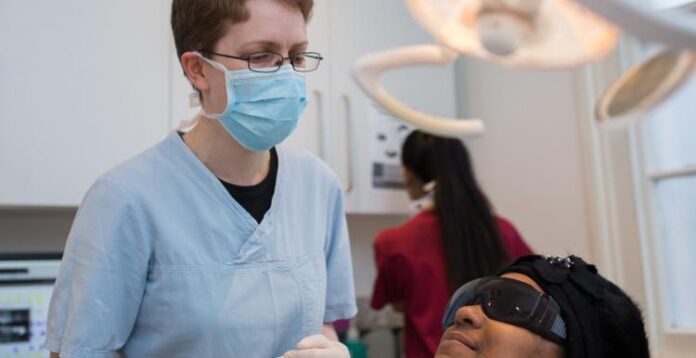New data indicates the dental crisis shows no signs of slowing, with four in five people struggling to access timely care during the last COVID-19 lockdown
Access to NHS dental care continues to be a problem for people across England, with Healthwatch recording a 22% rise in calls and complaints about dentistry between January and March 2021.
A review of 1,375 people’s experiences shared with Healthwatch found a lack of consistency across the country when it comes to accessing a dental appointment. Whilst some people were asked to wait an unreasonable time of up to three years for an NHS appointment, those able to afford private care could get an appointment within a week.
Whilst some people were charged £400 to get one tooth out, an individual reported being asked to pay over £7,000 for their dentures privately.
But private treatment is not an option for everyone, with many people now struggling to pay even for NHS treatment.
A poll of 2,019 adults commissioned by us found 61% of respondents felt that NHS dental treatments were expensive.
Reform of dentistry has been underway since 2009. Earlier this year, it was announced that NHS England would be taking over the process from the Department of Health and Social Care, but reform plans have yet to be announced.
In a recent report on the future of the NHS, the Lancet Commission stressed ‘an absence of affordability is a major barrier to dental care’ and suggested an abolition of patients’ co-payments to access and receive dental care.
We call for greater ambition and urgency from NHS dental reform plans to create more equitable and affordable dental care.
Imelda Redmond CBE, National Director of Healthwatch England, said: “The twin crisis of access and affordability hitting NHS dentistry means many people are not able to access timely care – and the poorest are hardest hit. Those human stories show that oral health is a social justice and equity issue.
Almost twice as many people from lower socio-economic groups (SEG) D and E struggle or can’t afford to pay NHS dental charges (37%) than people from the higher socio-economic group, A, (19%). As a result, people from SEG D and E are also twice as likely to avoid dental care due to affordability issues.
People living in the North East of England are the most likely to avoid NHS dental treatment due to costs (13%), compared with just one in 30 (3%) who live in the South West. Despite this, people in the North East have been charged for NHS dental treatments the most (29%), while people in the South West were charged the least (13%).
Just over a quarter of people from ethnic minority communities reported they would go to the dentist for regular check-ups, compared to two in five of White people. The survey also found that people aged over 55 from ethnic minority groups who are on low incomes were six times more likely to report avoiding dental treatments due to costs than their White counterparts.







